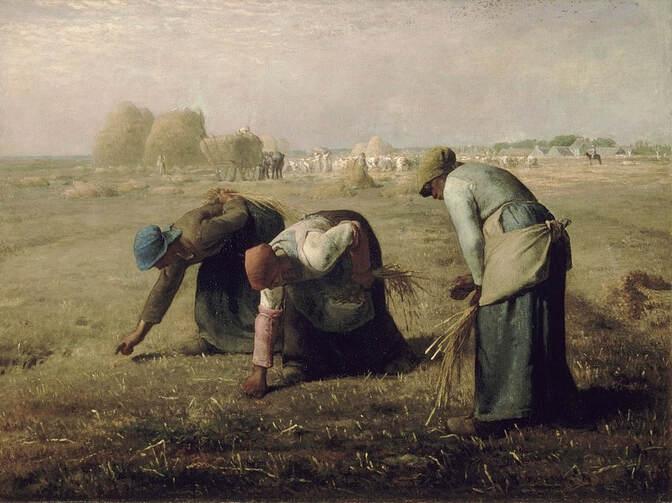Catholics Go Back To The Land
Reclaiming timeless farming methods, as well as private property.

In a movement dating back more than a century, lay Catholics are seeking to restore self-sufficiency and links to agrarian values.
Faithful Catholics in the U.S. are seeking to reclaim not only timeless farming methods, but to also foster autonomy in how they provide for and feed their families, not only physically but also spiritually. The Catholic Land Movement, which claims descent from the Catholic Land Associations of the early 20th century, calls on Catholics to embrace a simpler life centered on the Mass, family life, and what its modern founder calls “primary production.”
Michael Guidice is known by his online moniker as Michael Thomas of Sharon, which in an exclusive interview he said is a humorous reference to a practice of medieval Europe. As founder of the Catholic Land Movement, Guidice is preparing for the second national conference, which takes place June 23-25 in update New York. Two sites will welcome participants: Our Lady of Martyrs Shrine in Auriesville, and at a farm in Sharon Springs. Registration is now closed. Guidice said that he is expecting more than 400 people this year, topping the count for the first conference in August 2022.
“This movement is growing by leaps and bounds and hard to keep up with,” Guidice said in the interview. “The Spirit is moving among laity, religious, and parish communities, and we’re doing our best to put together the conference,” he added.
For background on the movement, Guidice referred to Fr. Vincent McNabb, a scholar and Irish Dominican friar who in the early 20th century was well known in the United States, Ireland, and the United Kingdom for his public preaching and co-founding the now-defunct Catholic Land Associations in the UK.
In an essay that appears on the website of the modern movement, McNabb listed seven motives to obey directives set out by the papacy. They are: Worship of God; Follow Christ; Family love; Love of Chastity; Love of justice; Love of liberty; and love of the fatherland. McNabb wrote: “In any case we clearly see, and on this there is general agreement, that some opportune remedy must be found quickly for the misery and wretchedness pressing so unjustly on the majority of the working class...Pope Leo XIII, Encyclical Rerum Novarum, no. 3 (1891). The law therefore should favor ownership; and its policy should be to induce as many as possible of the humbler classes to become owners.”
“The Catholic Land Movement pushes to create homesteads. Its focus is as a vessel of instruction and organization so that people can return productivity to the household. It is putting households and families back into the production of primary things,” he said. Referring to his own farm, where he lives with his family, Guidice said, “Sometimes, affiliated people are commercial farmers, but my farm is a homestead, which means that my primary focus is to produce the primary things for my own sustenance.”
Guidice said that he has a herd of sheep, a large garden, and 200 fruit and nut trees. He added that he was raised in New York City, and while he did not finish high school, he and his wife started a successful business and left the city to homestead in the country. He is also currently employed in residential construction.
“But the point of the Catholic Land Movement is not to serve the market economy. It’s more to teach people to return production to their own property and household, which is a core tenet of Catholic social teachings going back to Pope Leo XIII and elsewhere,” Guidice added. He said that several different workshops on homesteading will be offered at the conference this week, including haymaking, basic woodworking, and domestic arts. Clergy will also be on hand to offer talks on the theology of Catholic social teachings. Another conference is due in September.
An outgrowth of Rerum Novarum is the economic theory known as Distributism, which calls for productive assets, such as land, to be owned by the many rather than the few. Quadragesimo anno, an encyclical penned by Pope Pius XI in 1931, also influenced Distributism which was adopted by Christian Democratic parties. Distributism emphasized the social market economy, cooperative and member-owned mutual organizations, small and medium-sized businesses, as well as anti-trust regulation.
Among its proponents were Catholic authors Gilbert Keith Chesterton (1874-1936) and Hilaire Belloc (1870-1953) who were famed for their defense of the Church and its social teachings. Social market theory and distributism are currently espoused by the American Solidarity Party.
Martin Barillas is a retired diplomat, and author of 'Shaken Earth', which is available at Amazon. Signed copies are available by writing martinbarillasdelapena@gmail.com